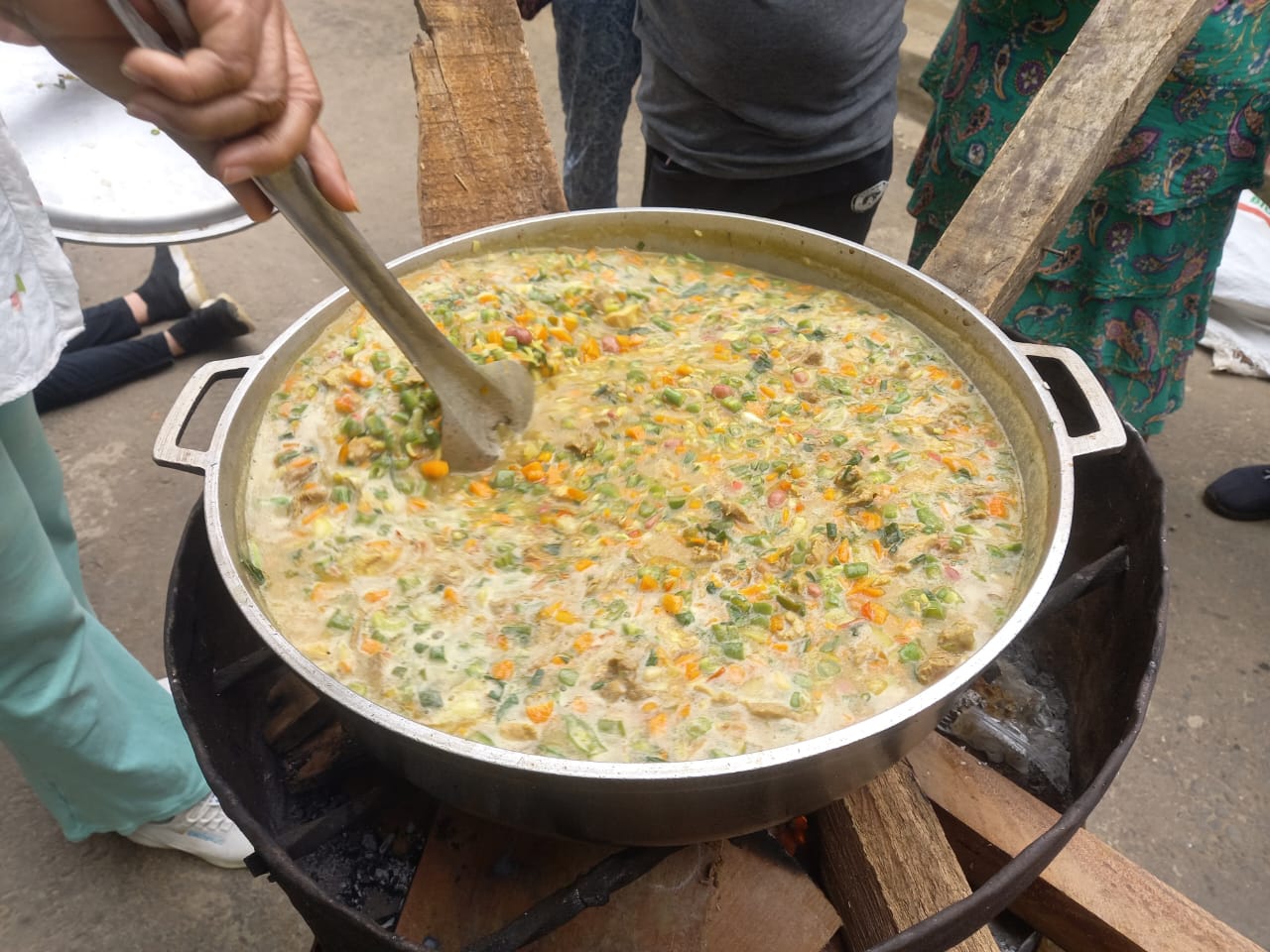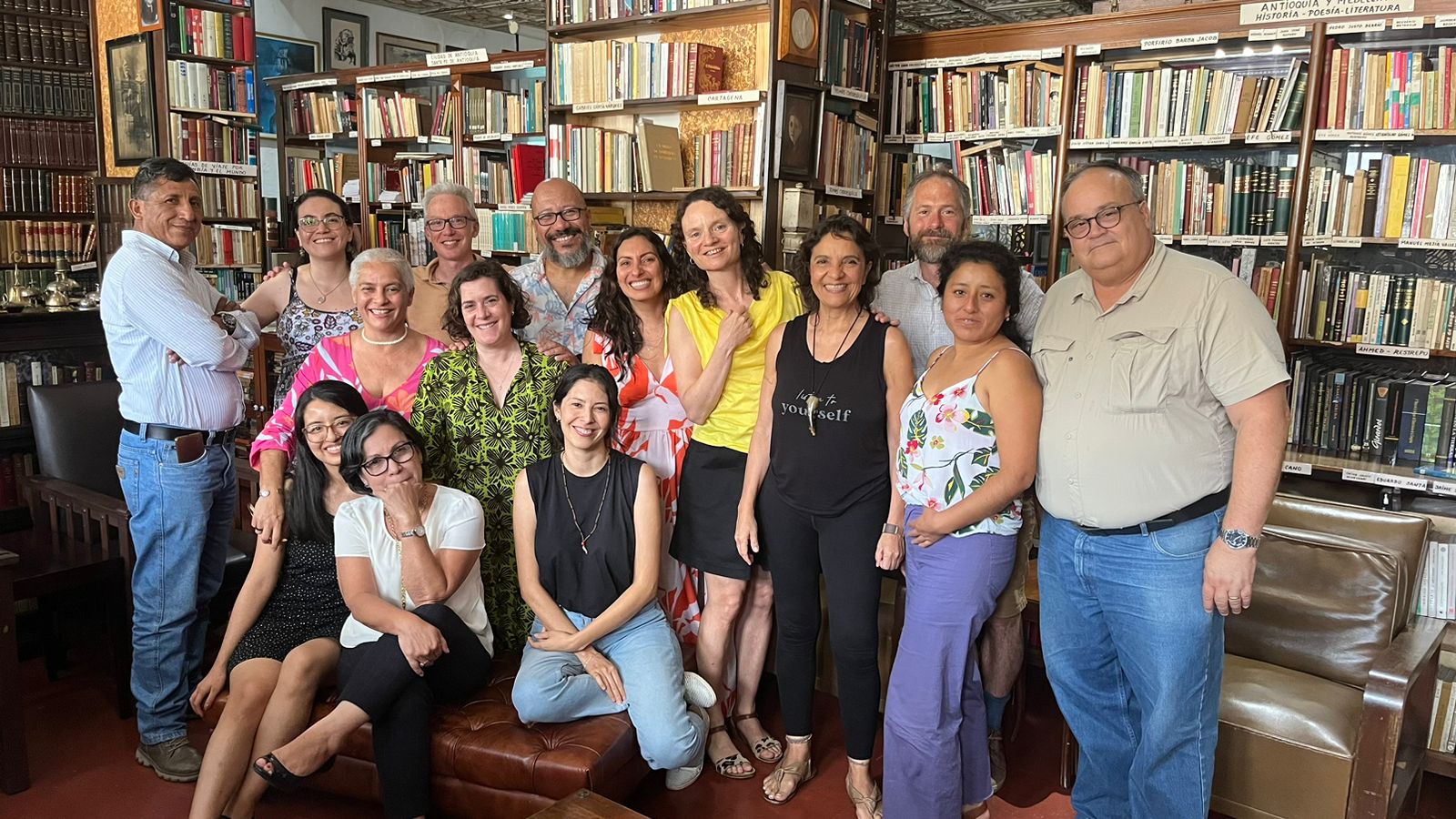Este blog está disponible en español: Aprendizaje de intervenciones nutricionales pasadas y presentes
Since 2021, a critical nutrition network has been bringing together diverse professionals including anthropologists, historians, nutritionists, dieticians, epidemiologists and public health specialists in the UK, Peru, Colombia and Nicaragua.
This interdisciplinary work comes together around the shared concern about the existing disconnection between the lived experiences of those who, over time, have been the targets of dietary and nutritional interventions, and the actors and assumptions who create national and international policy and practice, which is shown in the persistent, multiple forms of malnutrition and other associated problems.
The network’s activities included:
- national meetings with key actors in the three countries to build consensus,
- national-level “witness seminars” (group oral histories with high level actors working on nutrition),
- a systematic study of historical archives, and
- a multidisciplinary literature review.
In this blog, we reflect on the highlights of the work in each country, and we discuss the emerging results from the cross-network learning.
Central America: Highlights
Through the project activities, including an analysis of a local example (Casa Rural de Salud y Nutrición in El Salvador), the principal lessons were:
The witness seminar participants committed to sharing materials from different instances and the project will reciprocate, at the same time, for the benefit of all involved.
These participants contributed lines to follow-up for possible research to be addressed by the network, as well as potential methodologies and approaches to apply in this research, based on the benefit they would have as evidence for new policies and interventions.
The Central American research team were very satisfied with the reception and evaluation of the results presented at the seminar, in addition to receiving rich feedback by many varied actors, with guests sharing different experiences.
All the findings from different results were not only validated, but enriched with references and experiences that didn’t emerge through the bibliographic evidence because they are not recorded in writing. Instead they were inspired by presentations and were recorded for subsequent, more specific and focused searches. Many lines of research were identified, that could be potentially necessary for the design of successful interventions.
As the main result, institutional, academic, community and civil society actors continue with the expectation and interest in forming a research network that allows the deepening and extending of the practice of systematization, as well as the recording of experiences in the region on nutrition and development in order to take advantage of the lessons learned.
Colombia: Highlights
In Colombia, the team carried out reflective, critical and contextual work, on recognising and empowering the voices of those living in three urban-popular territories of the city of Medellín, with the participation of the following social and community organizations:
- with la Corporación Picacho con Futuro in the Progreso N.2 de la Comuna 6 neighbourhood,
- with the Bello Oriente network of social and community organisations, in the Bello Oriente de la Comuna 3 neighbourhood, and
- with the Huerta Ester Vásquez women’s group in the Guadalupe de la Comuna 1 neighbourhood.
For its development, teams of territorial co-researchers were formed to support and strengthen the community spaces of gardens, kitchens and dining rooms as experiential fields of learning and production of knowledge for this project.
The topics to be addressed were defined collaboratively with the communities, which included: soil and composting adaptation, seeds and planting, principles of agroecology, healthy and sustainable eating, strengthening community participatory processes and community health.

Likewise, within the framework of these activities, practical sessions were developed to prepare traditional and popular culinary recipes with which a recipe book was collectively built. A solar dehydrator was also made, with which they developed practices with aromatic plants and food from community gardens.
Additionally, a witness seminar was held as a technique for orally collecting information, through the participation of decision makers such as politicians and/or scientists, to reconstruct the historical trajectory of food and nutrition policies since 1960, and the contentions that have been configured since its implementation.
In the 1960s the problem was not posed in terms of food, so agrarian policies focused more on issues such as access to land or the modernisation of the countryside to meet industrial development. Currently, the conflict has been changing the configuration of this problem towards the appropriation of natural resources, transforming the agrarian issue into an urban-rural food problem.
This is how it is more clearly recognized that the links between producers and consumers are essential for rural development, which mandates the generation of more balanced policies regarding territorial development and, in general, public food and nutritional policies. However, this recognition has not materialized in policies since, in the last two decades, there has been a greater weakening of the agricultural sector following the signing of free trade agreements and, additionally, the political agenda does not incorporate the issue of inequality, and concrete and articulated actions.
Peru: Highlights
The Peruvian case was based on an ethnographic study carried out in the Ayacucho region, located in the southern part of the Peruvian Andes. The principal objective was to identify the main interventions to reduce childhood malnutrition and anemia in recent decades, in rural communities located in the district of Iguaín. During that time, 50 interviews were carried out, mostly of mothers who participated in nutritional programs or projects, and the rest to the responsible professionals and specialists in the subject.
From this, three moments were identified, highlighted in the women’s narratives, which correspond with important events in the history of this region and the country. The first of them is linked to the period of internal armed conflict (1980-2000) that affected the country, and especially Ayacucho> This is remembered as a precarious stage of rural life, but at the same time there was better access to food from the countryside, especially in the initial years. At this time, and from the impact of the armed conflict in this region, the beginning of the application of nutritional interventions that came from humanitarian entities and civil society stood out.
A second moment is the decade of the 2000s, which was marked by the creation of the Juntos state conditional transfer programme, is a milestone in the relationship between women and the State.
The third moment is from 2010 onwards, in which women identified and, at the same time, questioned the excessive surveillance of the health sector, the municipality and social programmes in order to meet the goals for the reduction of childhood malnutrition and anemia.
Finally, the preliminary results of the investigation were presented in a witness seminar, in order to generate a space for dialogue and discussion, subject experts and civil society representatives participating, who that make up the Initiative for Food and Nutritional Security (PERUSAN).
As part of the findings, two timelines were presented, from the literature review, and from the fieldwork carried out in Ayacucho. This motivated the participation of the attendees, who actively shared their impressions and experiences, valuable inputs that strengthened the results of the project.
The benefit of learning and sharing across countries
Since its creation, the network has been enriched by the intersectoral alliance for exchanging interdisciplinary evidence that has allowed for deeper knowledge about the history of food and nutritional interventions in the participating countries, in addition to understanding a little more, how such interventions are adopted and received at the local level.
As additional learning, there is the incorporation of methods such as the witness seminar. Through this interdisciplinary activity the political actors and those responsible for decision-making have been approached in a new way, with the aim of understanding historical developments from their experiences, from the countries’ food and nutritional interventions, comparing them with other evidence and sources of information.
Working with the network has been a satisfactory experience of learning and horizontal exchange between professionals who share an interest in delving deeper into the field of nutrition, based on novel approaches and methodologies. On the other hand, a continuous collective reflection was promoted that allowed us to think about common processes that affected the Latin American region, thus transcending a single-country vision.
From the IDS team’s point of view, focusing on building the network means that in the end everyone knows each other well, and various strengths and personalities are well understood. IDS’s role was to bring the network together and maintain a structure of activities.
In the last three years, 25-30 people from four countries and seven organizations have participated in the research team. The project funding was sufficient for everyone to participate, however differences in each organisation’s bureaucracy and fees meant that the money went further in some countries.

Within the team there was a variety of subjects, approaches and methods, including various ways of talking about the topic of malnutrition. Although there were different perspectives, everyone was exposed to different ethnographic methods and topics. Meeting online worked well to a certain extent, but it was after meeting in person that the team came together well, and learning was facilitated, overcoming barriers. For example, the process of mapping each country’s nutrition policy timelines revealed patterns that aligned with the global policy timeline.
What’s next:
The project team is now writing three articles on the themes that emerged from the in-person discussions. The first article will deal with trends in nutritional policies in Latin America, and the role of states in nutritional interventions. The second article will discuss the role of women in nutritional interventions. The third article, written by the Colombian team with the IDS team, will include an analysis of data collected on social and press networks in Colombia, and how narratives can mobilise action on nutrition.
It is expected that as a result of the work completed by the network in 2023, joint progress can be made in research activities in the participating countries.
To this end, we are considering building a longer-term research proposal for a new call where potential topics, identified by members of the network in this first round of work, can continue to be explored.
